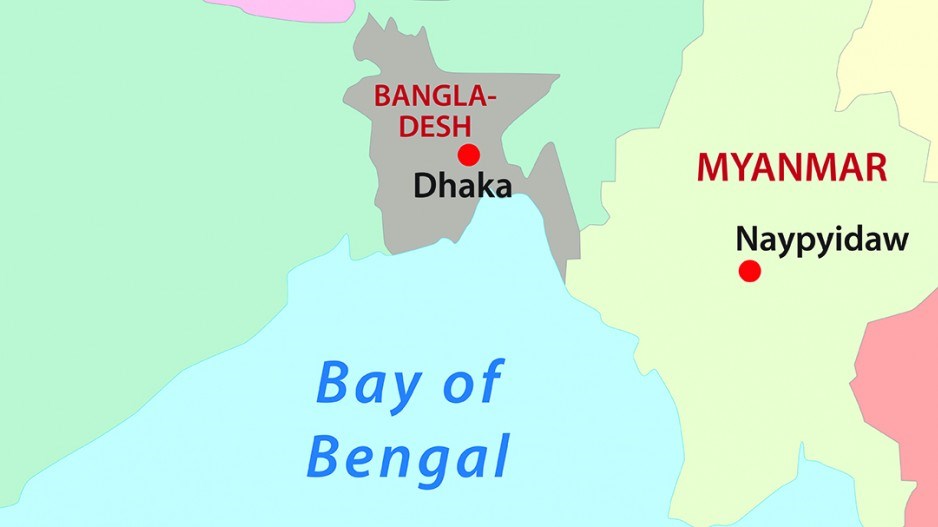Bangladesh has won undisputed ownership of what may be Asia-Pacific’s largest reserves of natural gas, but it is having a tough time persuading anyone to develop the fields.
The main reasons why international oil and gas companies are shunning Bangladesh are that the country’s tense political climate and disjointed economy make sinking money into the Bay of Bengal look far too risky. At a time when new technologies have made vast new supplies of natural gas available worldwide and thus depressed prices for the foreseeable future, companies are putting far more weight than in the past on the political and social contexts of their potential investments.
The failure of Bangladesh to attract investment is highlighted by the contrast with the bustling development of Burma’s Rakhine basin to the east and of India’s Mahanadi basin to the west.
The maritime boundary dispute between Bangladesh and Burma, also known as Myanmar, was settled by the International Tribunal for the Law of the Sea in 2012. Since then, the state-owned Myanma Oil and Gas Enterprise has awarded 20 offshore blocks to major internationals such as ConocoPhillips, Chevron, Total, Royal Dutch Shell and Norway’s Statoil.
New exploration and re-examination of old data show the Rakhine basin has great potential. But more than two years after the tribunal decision, little is happening in Bangladeshi waters, even though the gas-bearing geological structure stretches under the boundary line. The latest estimates are that Bangladesh’s offshore reserves of natural gas could be 200 trillion cubic feet, the largest in the Asia-Pacific region – and with easy access to the Indian, Chinese and southeast Asian markets. But when, in 2012, Bangladesh invited bids for 11 offshore blocks, only three were eventually awarded and no bids were received for deep-water allocations.
The resolution in July last year of the maritime boundary dispute with India to the west has been no more encouraging. The decision gave Bangladesh undisputed sovereignty over large areas of the northern end of the Bay of Bengal, and in April, the national oil company, Petrobangla, opened offshore oil blocks for bids. The response was meagre, with only Statoil and the United States’ ConocoPhillips making a joint bid on three deepwater blocks.
What is deterring the oil and gas companies is the political and economic climate ashore. Hundreds of people died during the campaign leading up to January’s elections. The tensions between Prime Minister Sheikh Hasina’s Awami League and the opposition Bangladesh National Party are still volatile and could easily flare into further violence.
Bangladesh is one of the world’s poorest countries, but instead of trying to stimulate economic development, successive governments have constructed a network of subsidies for staples such as food and energy. At the same time, Bangladesh ranks 136th in Transparency International’s assessment of corruption levels in 177 countries. Even when the system works, little of the subsidy money gets to where it was intended to land.
There has been little investment in infrastructure to encourage international oil and gas companies, either in physical transportation links or in administrative competency. The international companies mutter quietly that the Bangladeshi government and its instruments like Petrobangla and Bangladesh Petroleum Exploration and Production Co. lack the expertise or trained personnel to perform as reliable partners. There have been constant costly delays in getting such things as government decisions on exploration licences, and the companies say they find the Bangladeshi officials needlessly obstructive.
Yet at some point the Dhaka government has to realize it has the resource assets to start pulling its people out of poverty. And if it cannot itself field the skills to develop those resources, it had better find people who can. •
Jonathan Manthorpe ([email protected]) has been an international affairs columnist for nearly 40 years.




